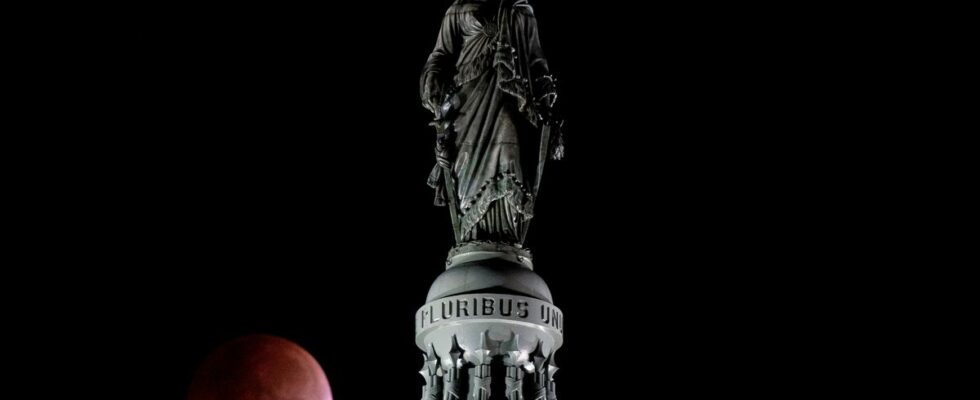From our special correspondent in Washington,
When your relationship is falling apart, sometimes you need some space. This is what France and the United States have – literally – done in recent months. After the Aukus crisis, linked to the termination of the submarine contract for Australia, orchestrated by Washington, “space has played a major role in the reconstruction of the Franco-American relationship” recently, assures Nicolas Maubert, the adviser Space at the French Embassy.
We understand better why Emmanuel Macron’s state visit to the United States this week includes a strong spatial “sequence”. The president is notably accompanied by Thomas Pesquet and the new French astronaut, Sophie Adenot. They will meet this Wednesday with Kamala Harris, the vice president, who oversees these issues at the federal government level.
Europe on the Moon?
To illustrate this “golden age” – we hear on the spot – of space cooperation between the two countries, the journalists who follow the French delegation were invited, on Tuesday, to a visit to NASA’s Goddard Space Flight Center, in Maryland, three quarters of an hour from the federal capital. Symbolic: it is the very first center built by NASA, in the 1950s. There, the French scientists who work with the Americans were out, and the others never cease to praise the ” from Paris. “The United States recognizes that France is one of the only countries to master everything in space: scientific, commercial and military,” explains Nicolas Maubert.
In truth, this cooperation is nothing new. The Center for Space Studies (Cnes), created in 1961, very quickly collaborated with NASA, born two years earlier. And in this Goddard center in Maryland, “French people came for several months to understand how a space program is managed…”, recalls Nicolas Maubert. According to him, the sending of the first French satellite, in 1965, is directly linked to this collaboration. More recently, Donald Trump relaunched the American space program, with the horizon of a return to the Moon. “The United States is 60% of the world’s space budget, so inevitably there is a ripple effect”, describes the attaché.
Very enthusiastic, he even made the audience dream: what if, thanks to this space “bromance”, the first European to set foot on lunar soil was French? After all, it is the importance of the contributions which offers places in the ship. We are not there yet, in particular because Germany, Italy and the United Kingdom can put forward the same arguments. Whatever, this is the story that Emmanuel Macron wants to tell during this state visit: that of an excellent relationship with the United States, which has positive consequences. A kind of “diplomatic trickle-down theory”.
The ally who must “deal with”
Except that the relaunch of the American space program – pursued by Joe Biden – cuts croupiers to France and Europe in their field of excellence: space launchers. This is the case, in particular, with the private program Space X of Elon Musk, largely subsidized by the American federal government. “We have to compose, finally recognizes Nicolas Maubert when the question is raised. We like to talk about ”coopetition” between us…” The “golden age” shines less.
So yes, France and the United States cooperate greatly on major scientific and exploration issues – and that was above all what was discussed on Tuesday in Maryland –, on the fight against climate change and on the still very weak regulation of activities in space. “Enormous stakes”, says Nicolas Maubert. And the presence of a space attaché at the French Embassy in Washington is not nothing. But in industries that can eventually pay off, friendship has its limits.
And this is undoubtedly an image of the current relationship between Paris and Washington. Certainly, it is good, even very good. And this third state visit in ten years for a French president demonstrates it, whatever one may say. But on Space as on inflation, energy, protectionism or Aukus, the United States has its own interests. And France, its “oldest ally”, will have to “compose”.

